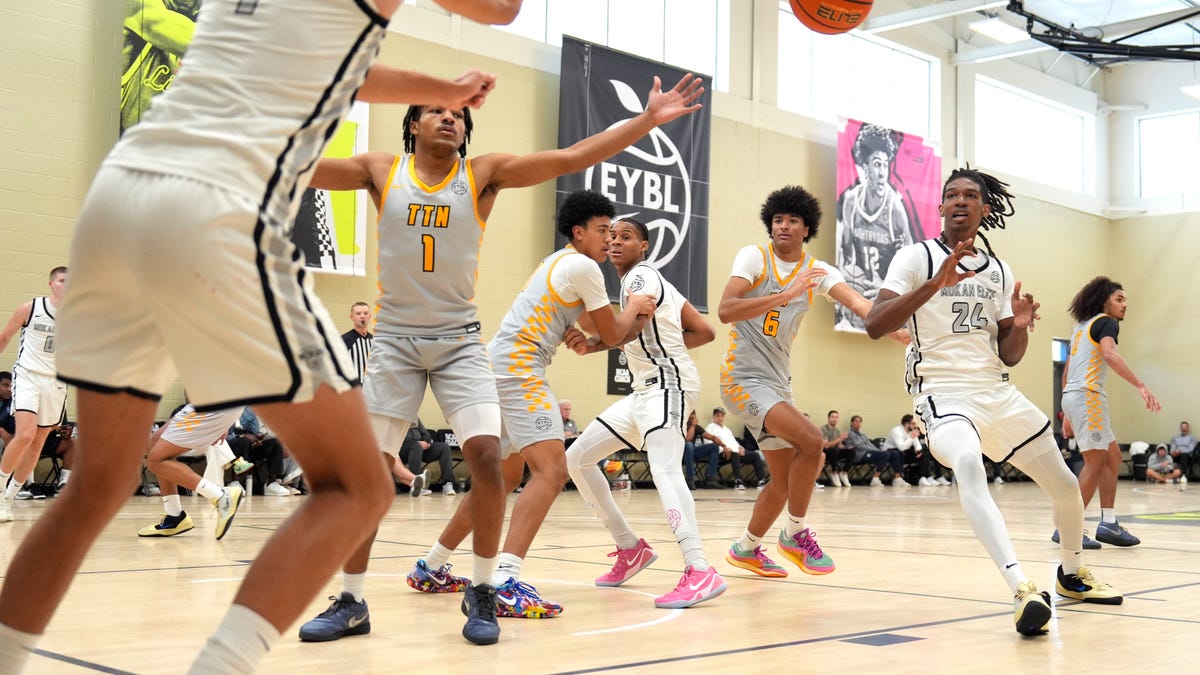East Lansing is buzzing, and the tremors are being felt across the entire landscape of college basketball. Tom Izzo, the legendary head coach of Michigan State, has once again proven why he remains an undisputed titan of the sport. In a move that sent shockwaves through the recruiting world, five-star center Ethan Taylor has officially committed to the Michigan State Spartans, a decision that not only solidifies one of Izzo’s finest recruiting hauls but potentially crowns it as the nation’s No. 1 class.
The Spar | A Five-Star Big Bang for Spartan Nation
This isn’t just another recruit; this is Ethan Taylor. At 7 feet tall with an undeniable presence in the paint and burgeoning offensive skills, Taylor represents the kind of generational talent that can transform a program. His commitment provides Michigan State with a cornerstone, a dominant force around whom Izzo can build an even more formidable empire. The impact of a five-star center like Taylor cannot be overstated; he instantly elevates MSU’s defensive capabilities, offers a reliable scoring option, and provides a physical interior presence that is increasingly rare in modern college basketball.
“This class, spearheaded by Taylor’s commitment, isn’t just about talent; it’s about fit. Izzo has always prioritized players who embody the Spartan ethos, and Taylor appears to be a perfect match. This is a game-changer.” – A College Basketball Analyst.
Izzo’s Enduring Legacy: Defying Time and Doubters
At 70 years old and in his 31st season at the helm, Tom Izzo is not merely ‘still recruiting well’; he’s out-recruiting coaches half his age. His ability to connect with elite prospects, sell the vision of Michigan State basketball, and continue to build championship-contending teams is a testament to his unparalleled drive and enduring relevance. While some speculated that age might eventually slow down the Hall of Famer, Izzo has emphatically demonstrated that his passion and prowess on the recruiting trail are as sharp as ever.
- Ethan Taylor (5-star C): The marquee addition, bringing elite size and skill.
- Three Prior Commits: Michigan State has already signed three other verbal commits for the 2026 class, forming a strong foundation.
- Another Big Target: The Spartans aren’t done yet, reportedly eyeing another significant prospect to round out an already historic class.
The synergy of this class, combined with Izzo’s veteran leadership, positions Michigan State not just for immediate success, but for sustained dominance. The question now isn’t if MSU will be a contender, but rather, for how long they can maintain this formidable position at the pinnacle of collegiate hoops.
What a No. 1 Class Means for Michigan State
Achieving the No. 1 recruiting class isn’t just a feather in Izzo’s cap; it’s a strategic advantage. It means an influx of top-tier talent, depth at every position, and a heightened level of competition in practice that translates directly to game-day performance. It signals to future recruits that Michigan State is the destination for excellence, a program where elite talent is not only welcomed but developed into NBA-caliber athletes.
The Road Ahead: Challenges and Expectations
With great talent comes great expectation. The pressure will be immense on this incoming class, particularly on Taylor, to live up to the hype. Integrating multiple five-star talents and other highly-touted prospects into a cohesive unit is a challenge even for a coach of Izzo’s caliber. However, if anyone can harness this raw potential and forge it into a championship-winning squad, it’s Tom Izzo. The future of Michigan State basketball has never looked brighter, and the rest of the NCAA is officially on notice. The Spartans are coming, and they’re bringing a five-star storm with them.
This monumental recruiting success is a clear declaration of Michigan State’s intent to dominate. It’s a statement that Izzo, even after decades, is still actively shaping the future of the game, not just observing it. The reverberations of Taylor’s decision will define narratives and expectations for seasons to come, fundamentally altering the competitive equilibrium of college basketball.

